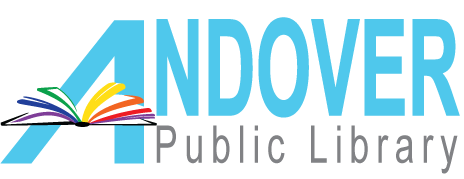Andover, Ohio,April 1, 2020: Members of the Andover Public Library Robotics Club founded the Pymatuning Fabrication Laboratory earlier this year. The PymaFabLab is currently using 3D printers to produce much needed medical and safety equipment during the Covid 19 crisis.
Pymatuning Fabrication Laboratory is a newly-formed non-profit organization whose main goal is to provide a place for technical collaboration, for people to share new discoveries, to help each other use technology to solve problems or accomplish a task. It also plans to make its equipment (e.g., 3D-printer, SLA printer) available for public use. Members both seek to expand their own technical knowledge and to share their expertise. Located in Andover, Ohio, it grew out of some regular users of the Andover Public Library’s makerspace. As it is in its infancy, PymaFabLab’s facilities have not yet been opened to the public, and current COVID-19 restrictions will delay that as long as they are in place. Along those lines, the PymaFabLab is non-profit, but our 501(c)(3) application is still in process.
As the number of new COVID-19 cases in Ohio began rapidly increasing mid-March and Ohio enacted measures to keep the number of cases requiring professional medical treatment from overwhelming the medical community, members of the PymaFabLab began discussing how they could help fill a need if the regular protective equipment supply became dangerously inadequate. 3D-printing face shields was an obvious choice. They found a suitable project online and began printing some on their 3D printer. The face shields are made by 3D-printing a special visor that has a slot to hold a sheet of transparency film so that it covers the face. Ties or rubber bands attached to the sides and going around the back of the head hold the visor in place. The visor is printed with PLA filament. Samples were taken to a testing lab, which verified that they do conform to ANSI standards for face shields’ droplet and splash protection. Although not intended to replace standard medical protective equipment, these shields can be used in conjunction with fabric face masks to provide better protection than the masks alone when standard protective supplies are inadequate.
Over the weekend, Brian and Nate Morgret acquired additional printers and supplies to print face shields to donate wherever needed. These
are already being distributed to area hospices, nursing homes, and other health care agencies. Anyone wanting to acquire some for a business or organization or those in need can contact Cathy Morgret at 440-858-5612.
Another project the FabLab would like to take on is producing ventilators for the severely affected. These are also insufficiently supplied in hard-hit areas. Instructions and source code for 3D-printing ventilator parts, encoding a processor, and assembling them are being developed by the open-source community. With additional funding, the organization hopes to begin producing those as well.
Want to join in? There are have several ways to help. Assistance is needed to assemble the face shields. Those with 3D-printers can either contact Brian Morgret at (440) 858-5609 for this project’s source code or find their own project online. People who have some technical experience can help with assembling ventilators and should contact Peter HIll (440) 789-0284.
The organization is accepting donations to offset costs of producing the 3D printed medical equipment. Those interested in helping may contact Lara Reibold, PymaFabLab Treasurer, for more information about donations (440) 645-4657.
Those wanting to make the face masks can find several different patterns online. JoAnn Fabrics in Ashtabula has been providing supplies to make 5 masks (including fabric already cut into appropriate-size rectangles) and instructions in a kit that is available free of charge upon request. They have also been donating several yards of cloth for those wanting to make a larger quantity. Various projects are available online. The Mercy Health blog (search on Google for “mercy health blog donate supplies” for a link) has good instructions for making a mask with a pocket for a filter and a pipe cleaner to help it fit around the nose better. (Note: some facilities prefer masks with the pipe cleaner for the better fit, other wanted masks without the pipe cleaner because their washers were too rough on the masks and they became a hazard for the wearer.) Contact Cathy Morgret for more information on homemade face masks at 440-858-5612
———–
HCP use of homemade masks: In settings where facemasks are not available, HCP might use homemade masks (e.g., bandana, scarf) for care of patients with COVID-19 as a last resort. However, homemade masks are not considered PPE, since their capability to protect HCP is unknown. Caution should be exercised when considering this option. Homemade masks should ideally be used in combination with a face shield that covers the entire front (that extends to the chin or below) and sides of the face.
